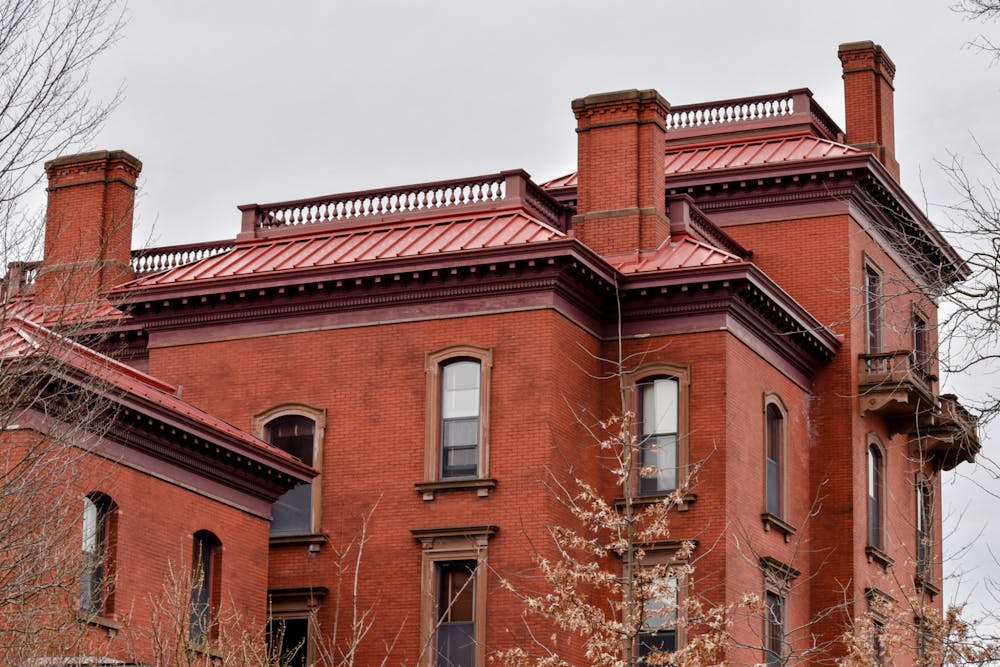Chairing an academic department at the University is a multifaceted task in normal times. But with the pandemic as an added stressor, department chairs at the University say that they have had to adapt unlike ever before to support their departments’ faculty and students.
The University asks its department chairs to perform “all the administrative tasks that a unit requires of its chief officers” and to ensure that the “highest of academic standards are maintained,” according to the Handbook of Academic Administration. Chairs are “responsible” both to the department they run and the University, and effectively serve as liaisons between administration and faculty in their department, the handbook says.
Three department chairs from across different subject areas of the University told The Herald that while COVID-19 posed many new challenges, they all watched their departments come together to support students and navigate new learning environments.
Ira Wilson, chair of health services, policy and practice, has been a department chair for over a decade. Had he not been equipped with 10 years of experience at the start of the pandemic, chairing a department during COVID-19 would have been “dramatically more difficult,” he said.
“This was a horrible experience and it’s been very difficult to be a leader of a significant number of people during something like this for all kinds of reasons,” he said.
Arriving at Brown in 2010 to serve as the department’s inaugural chair, Wilson said he expected his position to be a challenge — but after March 2020, his expectations had been far surpassed.
“I had no idea what to expect, if I'm being honest,” he said. “Nobody had any idea (of) the kind of psychological toll this was going to take on anyone.”
Bernard Reginster, chair of philosophy, noted that different members of the department were affected by the pandemic in distinct ways.
“Faculty members who must conduct field research or students whose academic performance might be affected by the conditions of their forced confinement” faced different challenges in navigating the pandemic and remote operations, he said.
Reginster and his colleagues, with the help of the University, transitioned into remote and hybrid learning with an eye toward adaptation. The department realized “early on” that they would need to “change (their) approach,” he said.
“We were one of the very first departments to request training for remote teaching, even before the University decided to move most of its operations online,” Reginster said. “The transition to remote learning was fairly smooth, considering the magnitude of the change.”
Wilson added that managing a department over Zoom changed the way he interacted with faculty. He noted that he could no longer “poke (his) head” into a colleague’s office to ask questions, and had to go through extensive appointment scheduling processes to have a “three-minute conversation.”
But virtual accommodations also allowed for more faculty attendance at monthly department meetings, Wilson said. Attendance grew from 25 to 30 people at in-person meetings to 50 on Zoom.
Mark Cladis, chair of religious studies, said that the pandemic impacted everyone differently, but his colleagues were determined to adjust and continue teaching and supporting students.
“In the end, the faculty all became felicitous with virtual teaching and learning. Everyone stepped up to (do) what needed to be done,” Cladis said.
According to Reginster, the Department of Philosophy worked hard to support the department’s community while serving as an active resource for its students.
“My sense is that most of my colleagues actually worked harder at their teaching than they used to,” he said. “The experience of speaking to students (who) you could neither see nor hear, in some cases, was strange to say the least. But we learned to adapt, for example by seeking periodic feedback from the students who had … the strange experience of attending class from the isolation of their own rooms, sometimes in the middle of the night if they had the misfortune of living in a far-away time zone.”
Even when facing substantial challenges, Reginster said his department managed to turn the obstacles of COVID-19 into learning opportunities by thinking about ways remote and hybrid learning can be used to strengthen their teaching in coming years.
“The distinctive challenges posed by remote teaching have also compelled my colleagues and I to reconsider teaching methods in ways that I hope will improve our teaching in the future,” he said.
Cladis expressed gratitude to his colleagues in the department for their willingness to respond to changing conditions.
“My colleagues were terrific — they were truly team players who stepped up to a variety of challenges,” he said. “We all emphasized the need to be supportive of our students, the staff and of each other.”
Wilson also said he appreciated efforts from University administrators to accommodate students.
“Right from the top, the president, the provost and everyone else did everything they could,” he said, specifying that he took pride in the support the University offered for faculty.
“I have immense respect and admiration for the way Brown handled all this,” he said. “Brown was unbelievable, from day one. Everybody on campus is an expert in learning and teaching, and just provided extraordinary resources for all of the faculty.”
While faculty have resumed a large portion of their normal in-person work, Wilson said his department is still feeling the effects of the pandemic. His once-bustling building turned desolate in March 2020 — and it still is two years later.
“Nobody's on campus,” he said. “People come to campus when they have to teach and then they leave. The public health building is like a ghost town. Imagine trying to run a department when nobody's there.”

Sofia Barnett is a University News editor overseeing the faculty and higher education beat. She is a junior from Texas studying history and English nonfiction and enjoys freelancing in her free time.





